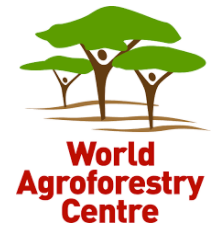Agroforestry and Land Health in Malawi
In the last five years ICRAF has helped establish comprehensive soil information systems in Tanzania, Ethiopia, Ghana and Nigeria. Malawi is determined to be next.
Africa has over 60% of the world’s uncultivated arable land but remains a major food importer. Even though agricultural production has grown by 130% over the past 30 years, with 18 Sub-Saharan countries halving the proportion of hungry people, more needs to be done. Soil is Africa’s most important natural resource: healthy and fertile soils are the cornerstones of food security.
To improve soils and increase productivity in Malawi, the World Agroforestry Centre (ICRAF) has partnered with the national departments of Land Resources Conservation (LRCD) and Agricultural Research Services (DARS) in the Agroforestry and Land Health in Malawi project, funded by the Flanders Government.The project addresses declining soil fertility and land degradation, economically and ecologically unsustainable chemical subsidies and climate-related incidences of low rainfall and floods.
The main objectives are to 1) assess functional aspects of ecosystem health in Malawi, including to design, deploy and apply a system to establish baselines and monitor trends of land health; 2) obtain accurate statistics on soil organic carbon, pH, texture, soil erosion, root-depth restrictions and woody cover densities, distribution and diversity under agroforestry and assessment of the contribution of agroforestry to land health in the country; and 3) develop tools and interfaces to explore land health indicators, as well as land use, allowing agroforestry to be formally added to national planning.
A key component is strengthening the capacity of local institutions, including the soil laboratory at Malawi’s Chitedze Agricultural Research Station, training in field methods for assessing land health and developing data analytical capacity. From 15–19 October 2018, a team of six researchers from Malawi attended an intensive training course in ICRAF’s soil laboratory in Nairobi, Kenya.“Trainees were equipped with skills to create workflows and standard operating systems for consistency in analysis methodologies, and improve their data processing skills”, said Elvis Weullow, ICRAF’S Soil-Plant Spectral Diagnostics Laboratorymanager. “Three other courses have been conducted both in Nairobi and Chitedze.”
This course covered sample preparation, which entails sample shipping, processing and spectral analysis methodologies using both near infra-red and mid-infra-red analytical instruments. The highlight of the training was spectral data processing and analyses. Infrared spectroscopy is a new tool for assessing soil quality rapidly and cheaply and is opening up new possibilities for monitoring soil quality in landscapes and for digital soil mapping.
“This training is timely. We have collected large sets of soil and plant samples from most of the districts and the analysis will produce a lot of data in a short span of time,” said Austin Phiri, Chief Agricultural Research Scientist, Ministry of Agriculture, Water and Irrigation, Malawi. “The high-throughput spectral and data analysis knowledge is going to be highly useful, especially in developing a national area-specific-fertilizer recommendation.”
“Following the training, I will be able to do spectral analysis, interpret data and write reports,” said Lester Botoman, an agricultural research scientist. “Also, the knowledge will be key in conducting a training of trainers for the technical staff as well as in creation of standard operating standards for the Chitedze Soil LaboratoryThe knowledge will go a long way, not only as an individual but for the whole nation.”
Read more about the World Agroforestry Centre’s Soil-Plant Spectral Diagnostics Laboratory here.
About The World Agroforestry Centre (ICRAF)
The World Agroforestry Centre (ICRAF) is a centre of scientific excellence that harnesses the benefits of trees for people and the environment. Knowledge produced by ICRAF enables governments, development agencies and farmers to utilize the power of trees to make farming and livelihoods more environmentally, socially and economically sustainable at multiple scales. ICRAF is one of the 15 members of the CGIAR, a global research partnership for a food-secure future. We thank all donors who support research in development through their contributions to the CGIAR Fund.




